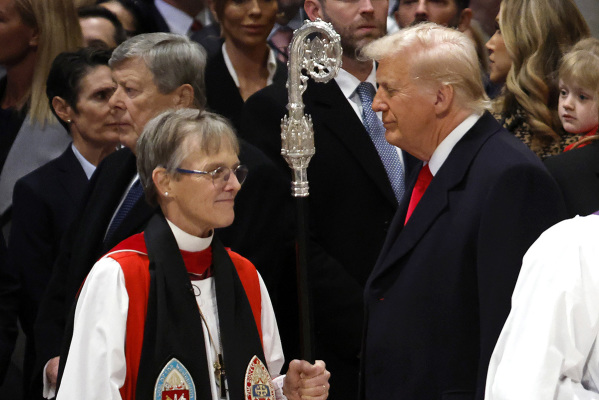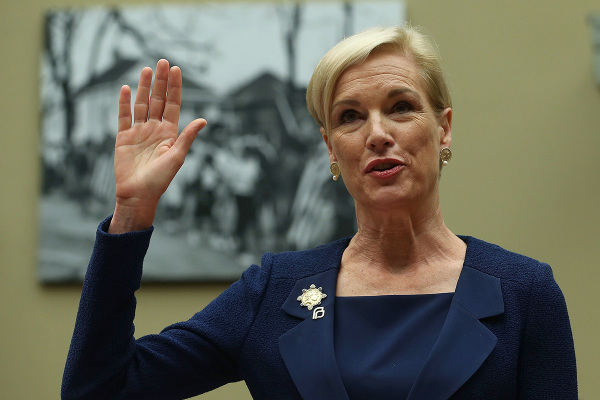Ohio passes bill allowing religious hospitals, doctors to refuse procedures that violate convictions

Ohio Gov. Mike DeWine signed a state budget last week that, among other things, allows for medical professionals and insurers to be excused from performing procedures that conflict with their religious beliefs.
The operating budget, also known as Amended Substitute House Bill Number 110, was signed by DeWine last Wednesday. The bill faced criticism from progressive groups that expressed concern about the conscience clause.
According to page 1454 of the Ohio budget, “a medical practitioner, health care institution, or health care payer has the freedom to decline to perform, participate in, or pay for any health care service which violates the practitioner's, institution's, or payer's conscience as informed by the moral, ethical, or religious beliefs or principles held by the practitioner, institution, or payer.”
“Exercise of the right of conscience is limited to conscience-based objections to a particular health care service,” continued the section.
“Whenever a situation arises in which a requested course of treatment includes a particular health care service that conflicts with the moral, ethical, or religious beliefs or convictions of a medical practitioner, the medical practitioner shall be excused from participating.”
In advance of the bill’s signing, the Ohio chapter of the American Civil Liberties Union took issue with the added conscience protection language. The organization claims the provision will be used to advance discrimination.
“The practical implications may include Catholic hospitals refusing to admit LGBTQ Ohioans, health insurance companies refusing to pay for contraception, doctors blocking fertility treatments, and so much more,” wrote ACLU Ohio Chief Lobbyist Gary Daniels.
Daniels contends that "adoption of this language will result in less health care access across the state when someone does not like who you are or what you believe.”
The progressive activist maintains that because the conscience protections include non-religious objections, “discrimination against pro-choicers, Trump voters, meat eaters, and Michigan fans will all be fair game.”
Dr. Todd Kepler of Equitas Health, a nonprofit healthcare system serving LGBTQ patients, expressed concern that the exemption in the budget bill is “widely broad” in its language.
“Say I happen to be a gay patient and I wanted to see a provider in my town, and there weren't really any other providers in town,” Kepler told The Journal-News. “But they find that morally unacceptable, they could turn me away, and the language is so broad that that could even be done at an institutional level.”
“So, if you have a hospital that perhaps has an affiliation with a religious institution, and again, that happens to be the only institution in town, theoretically, they could turn that patient away for health care.”
In a statement last Thursday, DeWine said that the inclusion of the conscience protections in the budget “simply puts in statute what the practice has been anyways.”
“Let's say the doctor is against abortion, the doctor is not doing abortion," DeWine said, as reported by The Journal-News. "If there's other things that maybe a doctor has a conscience problem with, it gets worked out, somebody else does those things."
The measure comes as there have been legal battles in recent years based on religious healthcare providers' objections to Obama-era nondiscrimination policies that required them to perform medical procedures against their religious convictions, such as sex-change surgeries or abortion.
In April, the Biden administration filed an appeal to defend the Obama-era healthcare mandate struck down in federal court earlier this year.
Across the country. some Catholic hospitals have faced lawsuits for refusing to allow surgeons to perform sex-change operations on trans-identified patients as part of gender transition procedures.
Earlier this year, Arkansas passed a similar bill to provide conscience protections for the religious objections of healthcare providers. Although that bill faces opposition from progressives, the religious freedom legal group Alliance Defending Freedom voiced support for the legislation.
“Patients are best served by doctors, nurses, and other medical professionals who are free to act ethically and consistent with their oath to ‘do no harm,’” ADF Legal Counsel Stephanie Nichols said in a statement in March. “The MED Act ensures that no medical professional is compelled to breach this oath by being forced to participate in procedures or treatments that violate their conscience.”






















